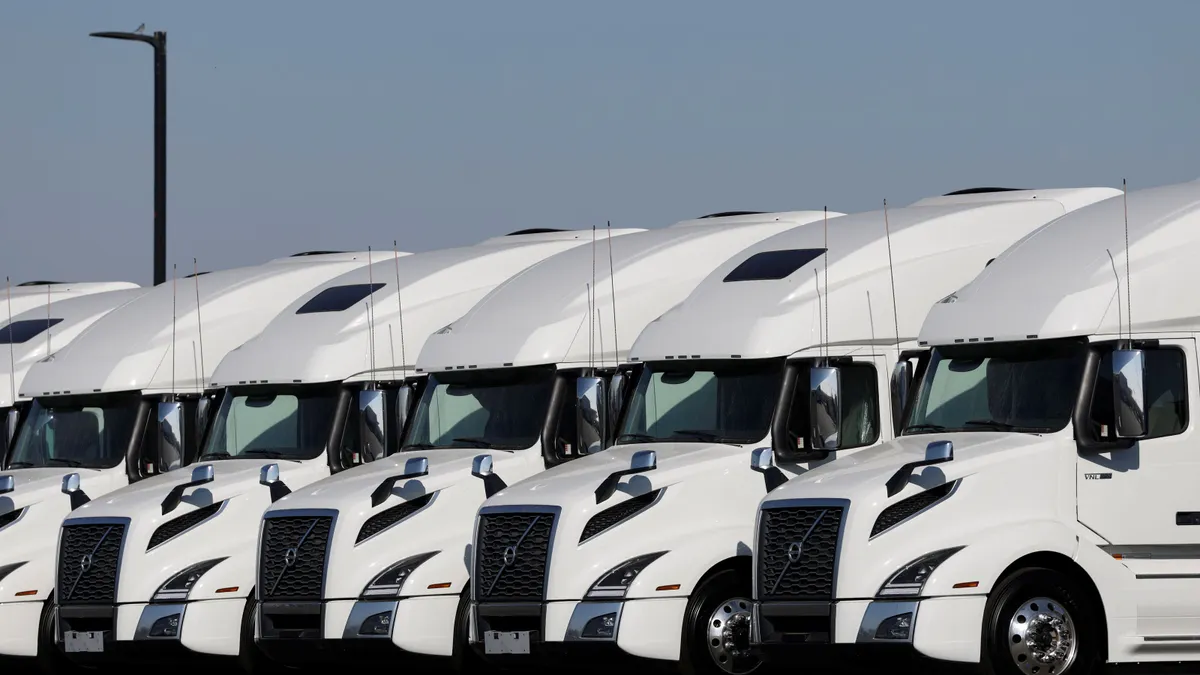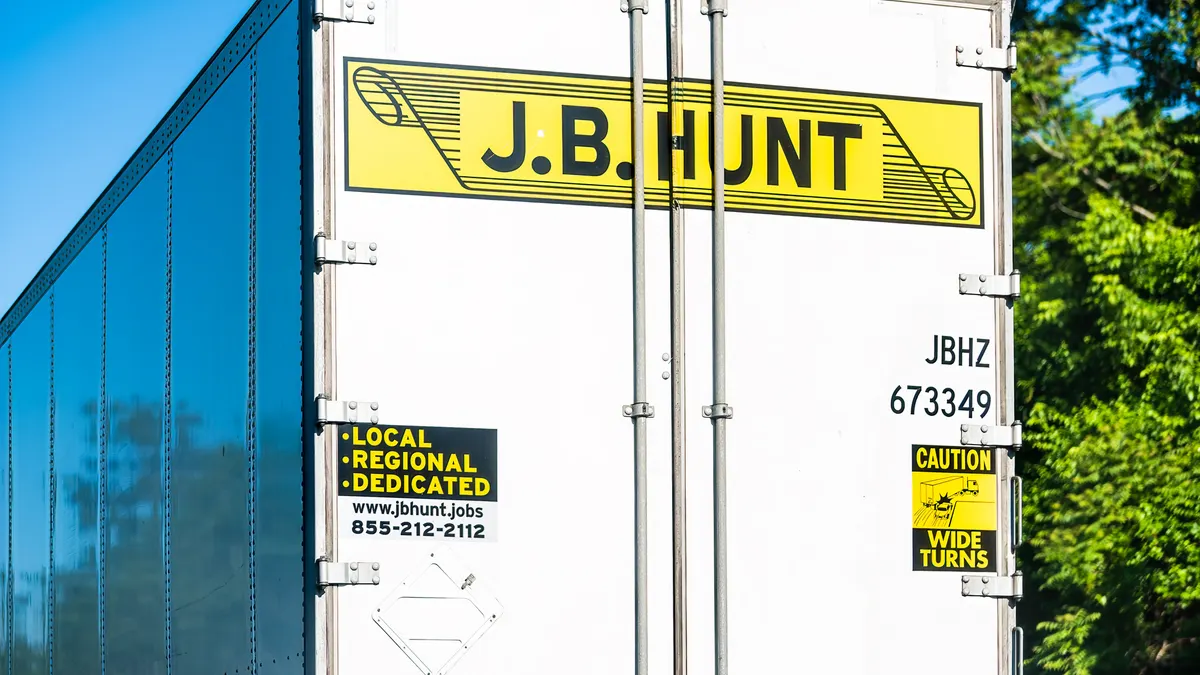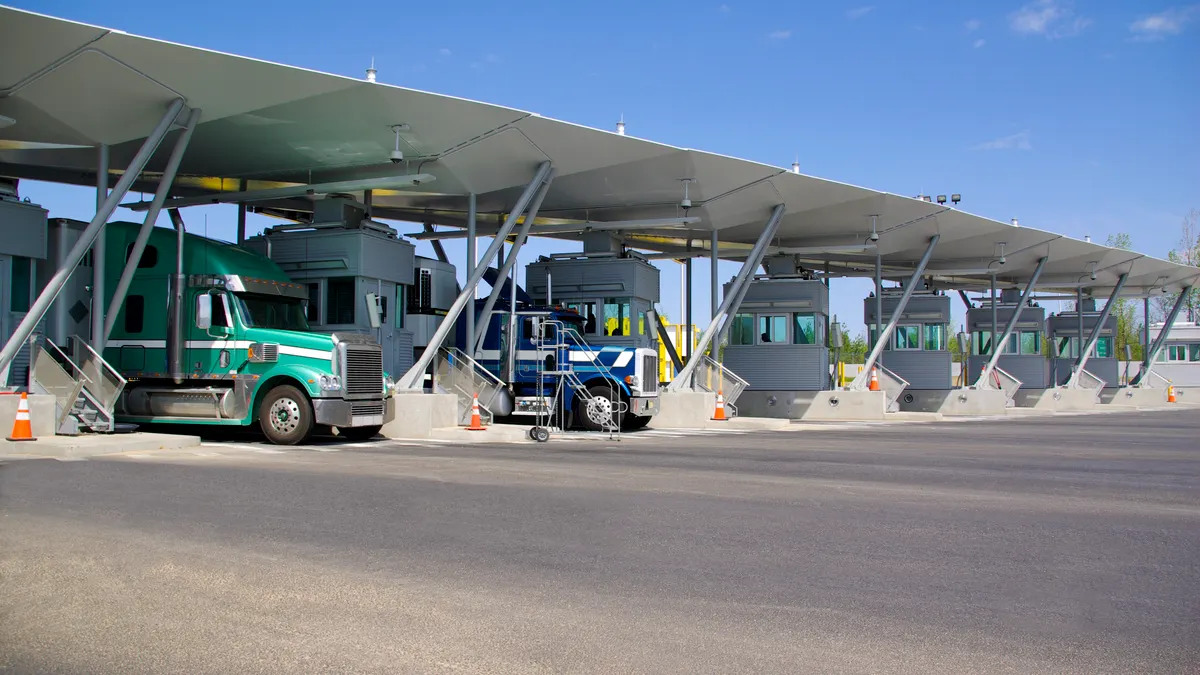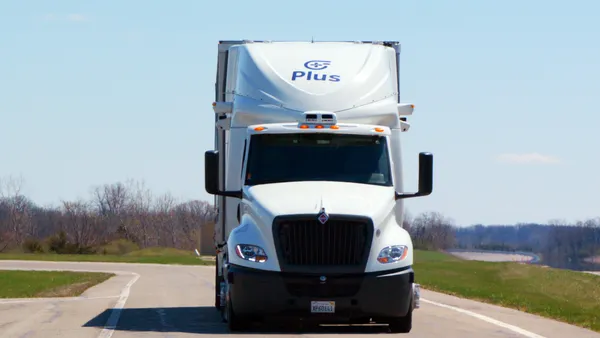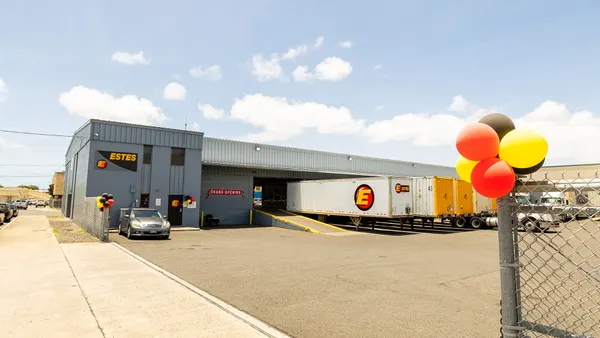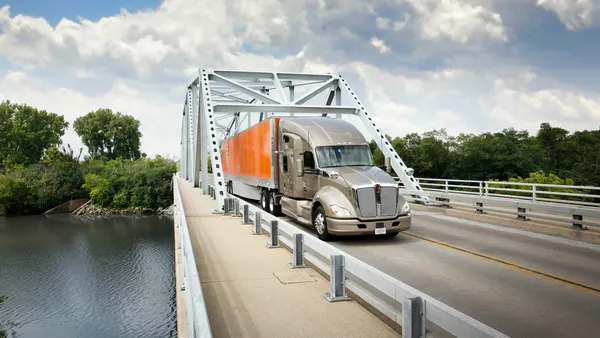Dive Brief:
- Volvo Group has lowered its 2025 sales outlook in North America to 265,000 trucks — a reduction of 10,000 units — citing new tariffs and weak demand, according to its Q3 earnings this month.
- President and CEO Martin Lundstedt said the company’s customers are in “wait-and-see mode” due to the high level of uncertainty brought on by current market conditions.
- “When you have turmoil from uncertainty in North America, it's a little bit more burdensome temporarily,” he said during the company’s Oct. 17 earnings call. “We know how to work with it short term. More importantly, we have built a very strong — so to speak — platform for the future in North America.”
Dive Insight:
Volvo Group faces mounting challenges in one of its largest markets as trade tensions and a freight slowdown cloud its outlook.
In addition to weak demand and supplier pushback, the company will be forced to grapple with a new 25% tariff for imports of heavy-duty and medium-duty trucks and their associated parts beginning Nov. 1. Even before the new levies, the company incurred 500 million SEK in tariff-related costs in Q3 alone, per CFO Mats Backman.
Lundstedt said while Volvo Group has a “100% U.S. footprint for North American trucks,” the company is preparing for potential tariff agreements between the U.S. and Mexico.
“We continue to invest and anticipate to have a starting point of around 10,000 units and then with the ability to move north when that is needed,” he said. He further noted that the company has a “structural undercapacity in North America for normal markets and also for upmarkets.”
“We cannot live with that. So to add that capacity for our North and South American markets for Volvo, Mack is necessary,” Lundstedt said.
In the U.S., Volvo Trucks has an assembly plant in Virginia, additional manufacturing facilities in Maryland and Virginia, as well as seven parts distribution centers. Its sister brand, Mack Truck, shares the company’s powertrain assembly facility in Maryland, and also has its own plant in Pennsylvania, which just began manufacturing the Mack Pioneer — the brand’s first long-haul truck in decades.
For now, however, it is unlikely Volvo will expand production capacity. The freight recession continues to weigh on demand, and the company expects new tariffs to further slow orders into 2026.
In Q3, Volvo Group’s total truck orders increased by 10% YoY, but deliveries fell by 20% YoY, according to the company’s earnings report. Sales of heavy-duty trucks during the first nine months of 2025 were also down 10% compared to the same period last year.


